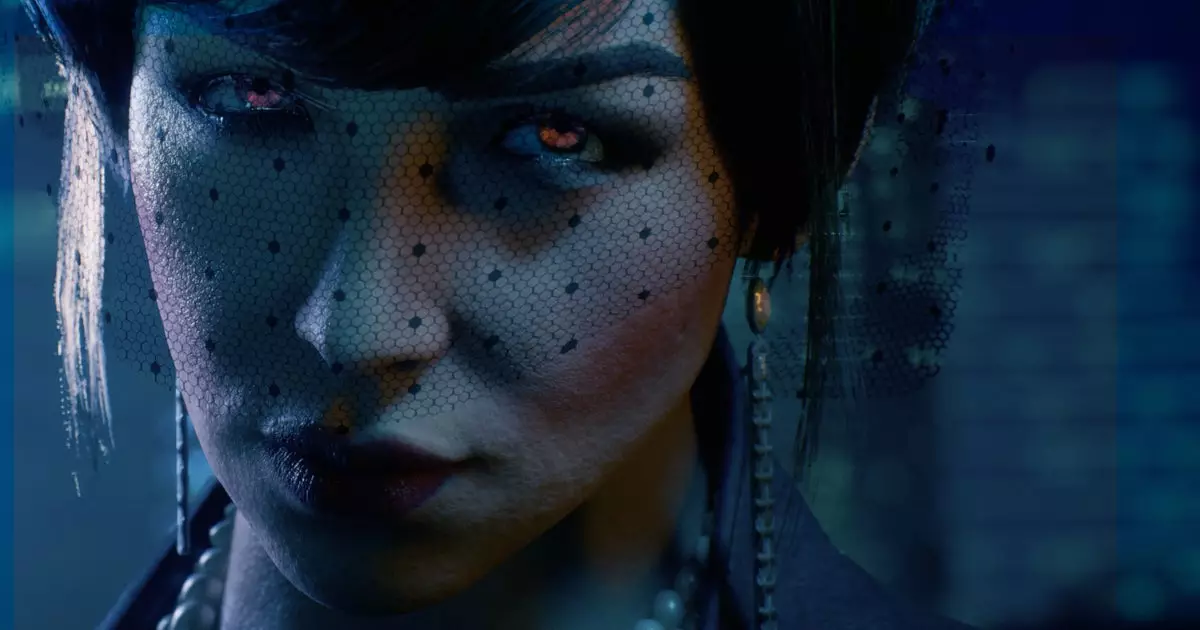Vampire: The Masquerade – Bloodlines 2, the much-anticipated sequel to the cult classic, is set to take a different direction than fans of the original might expect. Paradox Interactive has disclosed that this forthcoming title, currently under the development of The Chinese Room, will not follow the “open sim” formula that characterized its predecessor released in 2004. Instead, Bloodlines 2 is positioned as a more linear action-RPG experience nestled within the rich tapestry of the World of Darkness universe. While this decision aligns with The Chinese Room’s expertise, it raises critical questions around fan expectations and nostalgic idealizations.
The Chinese Room is known for its emotionally charged storytelling, as evidenced by titles like Dear Esther and Everybody’s Gone to the Rapture. Their ability to weave narratives through atmospheric settings is undoubtedly a strong asset as they tackle Bloodlines 2. However, this new focus contrasts starkly with the intricate systems and player-driven experiences that players of the original Bloodlines cherished. Mattias Lilja, the deputy CEO of Paradox, acknowledged these shifting dynamics when he described the need for a game that resonates with the current gaming landscape rather than simply aiming for the wistful echoes of the past.
The developer’s decision seems partly informed by what they perceive as mythologization surrounding the original game. Lilja stated that players cherish the memories of Bloodlines more than its actual mechanics, pointing out that certain outdated features “wouldn’t fly today.” The unsettling reality remains that while nostalgia can be a powerful motivator, it can also cloud judgment regarding a game’s viability in modern gaming contexts.
The development timeline of Bloodlines 2 has been riddled with obstacles, including studio changes, personnel adjustments, and an increasingly lengthy wait for fans. Initially announced in 2019 with significant fanfare and expectations that it would deliver a sequel “you have been waiting for,” the reality has proven far more complex. With Hardsuit Labs initially tasked with development, the project faced numerous delays and creative disagreements that led to the exit of key personnel, including Brian Mitsoda, the original game’s lead writer.
Lilja’s remarks regarding these challenges indicate a pivot towards a more cautious approach in game development for Paradox. For instance, he hinted at a desire to make “smaller bets” on projects in the future, emphasizing an obligation to hone their commitments to productions outside their traditional scope. This notion brings to light the industry’s tendency to overreach, especially when riding the wave of past successes.
What is perhaps most critical in this conversation is Paradox’s desire to recalibrate fan expectations ahead of the game’s release. Lilja articulated the importance of clarity regarding the type of game fans can anticipate. By emphasizing that Bloodlines 2 will be a spiritual successor rather than a direct continuation of the original’s formula, Lilja hopes to prevent disappointment and future backlash. This cautious framing echoes a broader industry trend seen in recent remakes and sequels, where developers seek to manage inflated anticipations born out of the original’s legacy.
He further underscored that while the original Bloodlines may hold a significant place in gaming history, its structural limitations are a reality that must be acknowledged. Lilja’s observation that the older title is a “competently good game by 2004 standards” resonates with a growing sentiment that gaming nostalgia often blinds players to the inherent limitations of earlier titles. This protective stance aims to create a healthier relationship between creators and consumers, one that does not rely on fond memories clouding the present reality.
As the release date for Bloodlines 2 approaches, there is cautious optimism regarding its potential. Still, the burden of expectation remains heavy. The Chinese Room has proven adept at crafting compelling narratives, and their involvement brings promise for creating an atmospheric experience within the World of Darkness. While it may not embody the chaotic freedom synonymous with immersive sims, it holds the potential to captivate players with a structured yet engaging storyline.
Ultimately, Paradox’s experience over the past few years serves as a crucial lesson in the volatility of game development. Bloodlines 2’s journey underscores the need for clarity and realistic projecting of what players can expect, while also demonstrating the allure of a compelling narrative experience. If successful, Bloodlines 2 may serve not only as a reminder of the original’s legacy but also as a new chapter in a beloved franchise. Fans of the series will be hoping it proves more than just a shadow of its predecessor, instead carving out its own unique identity within the broader landscape of action RPGs.

